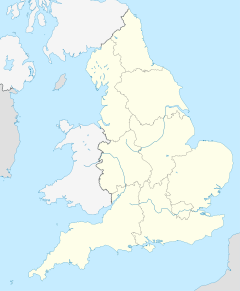Withernsea Lighthouse

Whiternsea Lighthouse
|
|
|
England
|
|
| Location |
Withernsea Yorkshire England |
|---|---|
| Coordinates | 53°43′51″N 0°01′44″E / 53.730953°N 0.028751°ECoordinates: 53°43′51″N 0°01′44″E / 53.730953°N 0.028751°E |
| Year first constructed | 1894 |
| Deactivated | 1972 |
| Construction | brick tower |
| Tower shape | tapered octagonal prism with balcony and lantern |
| Markings / pattern | white tower and lantern |
| Height | 39 metres (128 ft) |
| Admiralty number | A2574. |
| ARLHS number | ENG-169 |
| Managing agent | Withernsea Lighthouse Museum |
| Heritage |
Grade II listed building |
|
[]
|
|
Withernsea Lighthouse is an inland lighthouse that stands in the middle of the town of Withernsea in the East Riding of Yorkshire, England. The lighthouse stands 127 feet (38 m) high and took 18 months to build between 1892 and 1894. Formerly owned and run by Trinity House of London, it ceased operation on 1 July 1976 and is now used as a museum.
The base of the lighthouse features RNLI and HM Coastguard exhibits, with models and old photographs. These record the history of ship-wrecks in the area and detail the Withernsea lifeboats and crews who saved 87 lives between 1862 and 1913. It also depicts the history of the nearby Spurn lifeboats.
The local history room has Victorian and Edwardian photos of the town including the pier and railway.
There is a Kay Kendall memorial to the 1950s film star, who was born in the town.
Views from the lamp room in the Withernsea Lighthouse are breathtaking, especially after climbing the 144 steps. There is no lamp, however, as this was removed after closure and sent to St Mary's Lighthouse in Tyne and Wear where it can still be seen to this day.
The lighthouse and adjoining lighthouse keepers' houses are now a Grade II listed building.
The lighthouse is a surprising distance (nearly 1⁄4 mile or 400 metres) from the sea front. At the time it was built, there was nothing between it and the sea but sand dunes, and fear of coastal erosion led to it being positioned well back.
...
Wikipedia

